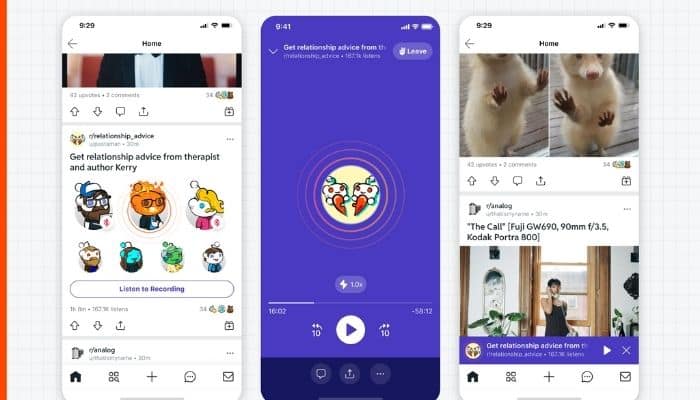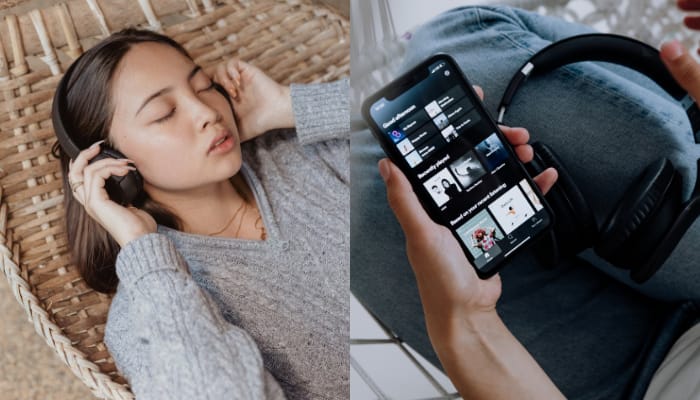Manila, Philippines – The global pandemic has pushed the majority to tune in to digital channels to be entertained, including music streaming. With the greater majority of these listeners being under the Gen Z and millennial demographic, their diverse perspectives on music streaming content can be tapped by advertisers, as the latest insights from Spotify shows in retrospect of the Philippine market.
Part of the influencing factor many young Filipinos are streaming audio content more than ever is due to reasons around having it as a ‘mental escape’. For instance, the survey noted that the respondents have listened to songs from the ‘70s 59% more and songs from the ‘80s 40% more as a way to lean on to a ‘nostalgic feeling’. Furthermore, about 87% of millennials and 85% of Gen Z’s locally say that they listen to audio to reduce their stress levels. Lastly, around 76% of Filipino millennials see audio as a mental health resource.
In line with this, the survey recommends brands to align any of their sponsored content to a more ‘comforting’ zone, noting that this creates a positive association with the type of audio we are listening to. Furthermore, the survey also emphasizes the significance of the rise of podcasts, which can be used by brands to promote podcast episode snippets to inform listeners and increase curiosity.
“Listeners are more receptive when messaging matches their mood. Consider millennials’ nostalgic listening experience and lean into contextual targeting to match their vibe,” Spotify said in a statement.
And with audio now having a more ‘emotional’ attachment to these younger generations, respondents are now more positive in democratizing live experiences concerning audio content. About 65% of the respondents say that they prefer connecting with other music fans around the world through a live-streamed concert, while 35% prefer connecting with their favorite local artist and fellow fans through a physical concert.
In addition, 51% of the respondents now prefer virtual concerts in contrast to the 42% of respondents preferring physical concerts, stating that virtual concerts are far more cheaper and more convenient.
The survey also noted that as part of democratizing these audio experiences to a wider audience, brands are advised to think more of the consumer base’s interests, not what they are made of. For instance, gamers who are long stereotyped for the male demographic, are now expanding into the female demographic.
“Gamers are focused on scoring when they’re deep in play mode, but they also use time spent gaming to learn and discover new things, from podcasts to playlists. Take your targeting to the next level by reaching gamers of both generations in real-time while they’re soundtracking their gaming,” the company added.
A larger part of the democratization of live experiences in audio content is due to the wave of fanbases rallying support behind these artists and content creators, with 39% of the respondents saying they have known their favorite music artists or podcast creators via social media. Other factors include knowing them from an existing artist (15%), streaming service recommendation (11%), friend recommendation (9%), and as seen from a movie or TV show (8%).
“Gen Zs and millennials are not just consumers, they’re creators. Pull back the curtain and give your audience a backstage pass to your brand’s creative process — and the opportunity to be part of it,” they commented.
Lastly, Filipino Gen Z’s and millennials understand that part of their diverse audio listening experience comes from amplifying unheard perspectives from societal sectors that are not given amplification back then to represent themselves. Around 62% of millennials and 58% of Gen Z’s in the Philippines said they’ve sought more content from more diverse creators and podcasts in the last year.
In addition, 68% of Filipino Gen Z’s believe they have more freedom to be their authentic selves than previous generations.
“As voices behind the mic become increasingly diverse, the audio medium is resonating with a wider audience — the fruits of which are already starting to change the industry,” Spotify stated.
The platform added, “[Gen] Zs are the most racially and culturally diverse generation yet, and they expect brands to reflect, represent, and empower them through their campaigns, talent partnerships, and participation in social justice movements.”


